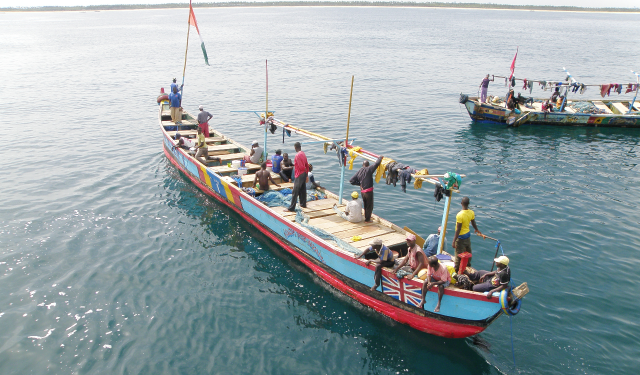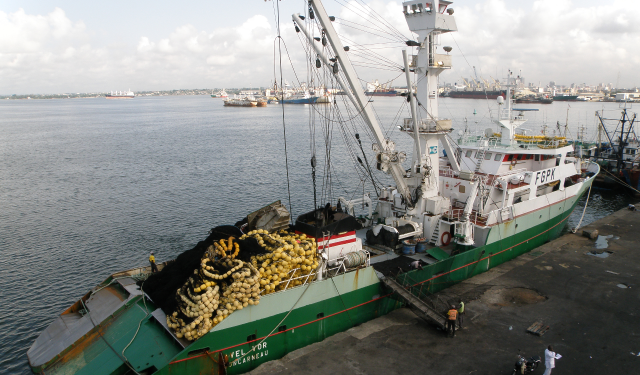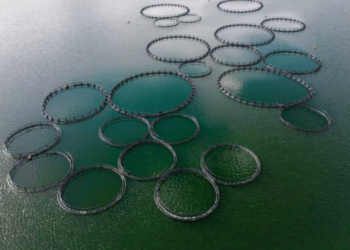FAO supports Côte d’Ivoire in improving its legal framework for fisheries – A mission of the UN organisation examined, in Grand-Bassam, a seaside town located 40 km south-east of Abidjan, with the Ivorian party, six draft laws aimed at taking into account certain principles of international instruments, during a workshop.
The workshop, which was held during the week, brought together officials from the West African Coastal Fisheries Initiative, the Ecosystem Approach to Fisheries Project (AEP-NANSEN), professional organisations in the sector and the ministry in charge.
Fatou Sock, the coordinator of the West Africa Coastal Fisheries Initiative Project, said that this was a joint mission with the EAF-Nansen Programme. The overall objective is to boost fisheries governance, but also to support stakeholders in the value chain.
The workshop provided an opportunity to review the legal frameworks and policies for promoting the fisheries sector in Côte d’Ivoire, a process that has already been initiated by the Ivorian Ministry of Animal Resources and Fisheries.
The Coastal Fisheries Initiative, which is a programme of five projects, is operating in Latin America, notably in Peru and Ecuador, as well as in Indonesia and in West Africa with Côte d’Ivoire, Cape Verde and Senegal.
The Coordinator of the Coastal Fisheries Initiative Project pointed out that another project coordinated by the World Bank, involving private sector involvement, is being implemented in Cape Verde, Indonesia, Peru and Ecuador.
She mentioned that the West Africa Coastal Fisheries Initiative Project, delayed by the Covid-19 health crisis, is being extended for a year with the support of the authorities of the three countries to enable the implementation of the programme.
Merete Tandstad, who is in charge of the Ecosystem Approach to Fisheries (EAF-NANSEN) project at FAO, said the aim of the programme is to improve food security and ensure sustainable fisheries management.
Its action, she said, is based on the triptych of sustainable fisheries management, research and knowledge to support decision making. We have 32 partner countries, including Côte d’Ivoire,” she said.
Advancing Sustainable Fisheries Management: Embracing the Ecosystem Approach for Regulatory Excellence in Côte d’Ivoire
The ecosystem approach to fisheries should enable the Ivorian state to have a regulatory system. It also aims to support fisheries management by taking into account the impacts of climate and pollution.
Regional texts recommend that Côte d’Ivoire promote the preservation of biodiversity and ecosystem research, but also the protection of resources and ecosystems through education and awareness-raising, and to define a research programme on the ecosystem approach.
Alain Kodjo, technical advisor to the Ministry of Animal and Fisheries Resources, assured the improvement of sanitary conditions at the landing stage of Locodjro, in the west of Abidjan, and the continuation of efforts to reach the point of completion of the certification as soon as possible.
“This workshop, which focuses on strengthening our legal arsenal, is an opportunity to confirm the will of the Head of State to promote the establishment of adequate mechanisms to resolutely reposition the sustainable management of fisheries resources,” he said.
The sustainable management of fisheries resources has become a major issue in terms of the divergent interests of stakeholders that need to be regulated and food security guaranteed. To this end, FAO is supporting the Ivorian government to improve its governance and regulation.
Côte d’Ivoire has improved its legal framework for fisheries with the adoption of a law on 26 July 2016 on fisheries and aquaculture. New strategies are needed to ensure better coherence with international instruments, notably the EAF-Nansen and the directives aimed at ensuring the sustainability of artisanal fisheries and the integration of the gender dimension.
Several basic texts were used to revise the legal framework, including a decree issued in 2022 on the organisation and functioning of the National Fisheries Advisory Committee, as well as the 2021 decree on the Management Committees for Inland Fisheries.
Another reference framework is the Uemoa directive of 2014, in its article 7, which asks the member states of the Union to set up consultative bodies at national and local level in order to ensure the consultation of the main stakeholders.
FAO supports Côte d’Ivoire in improving its legal framework for fisheries










